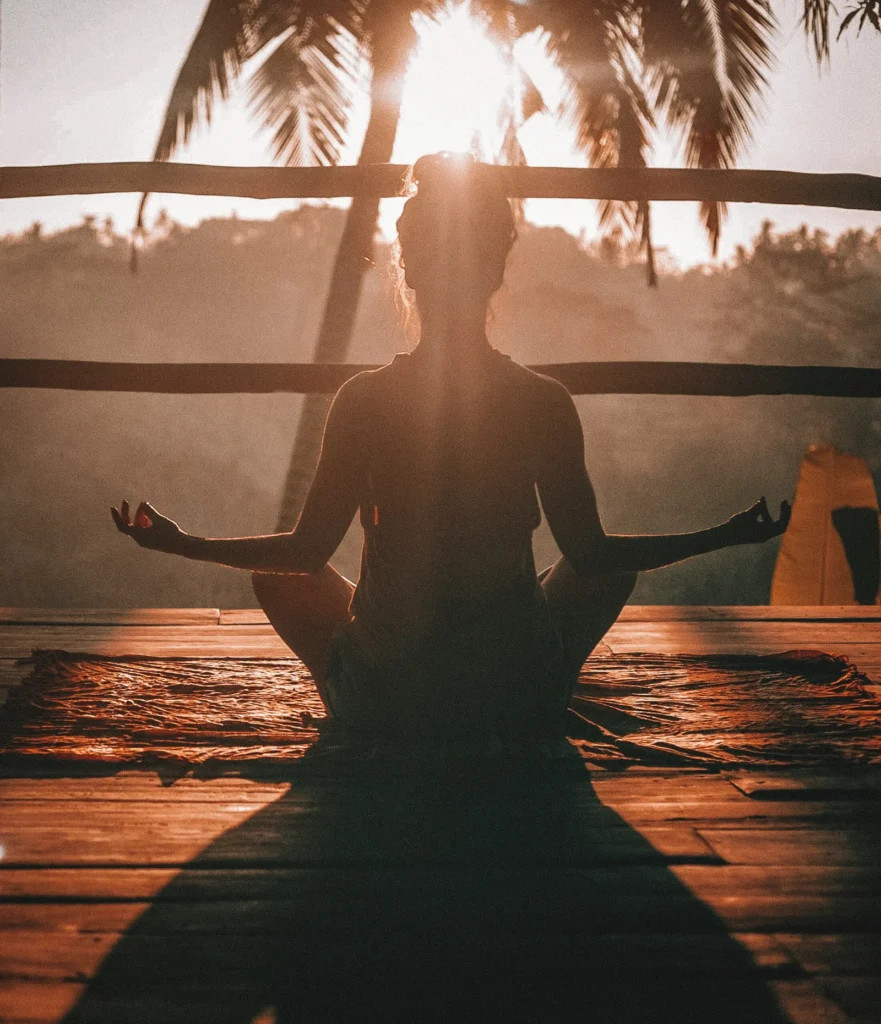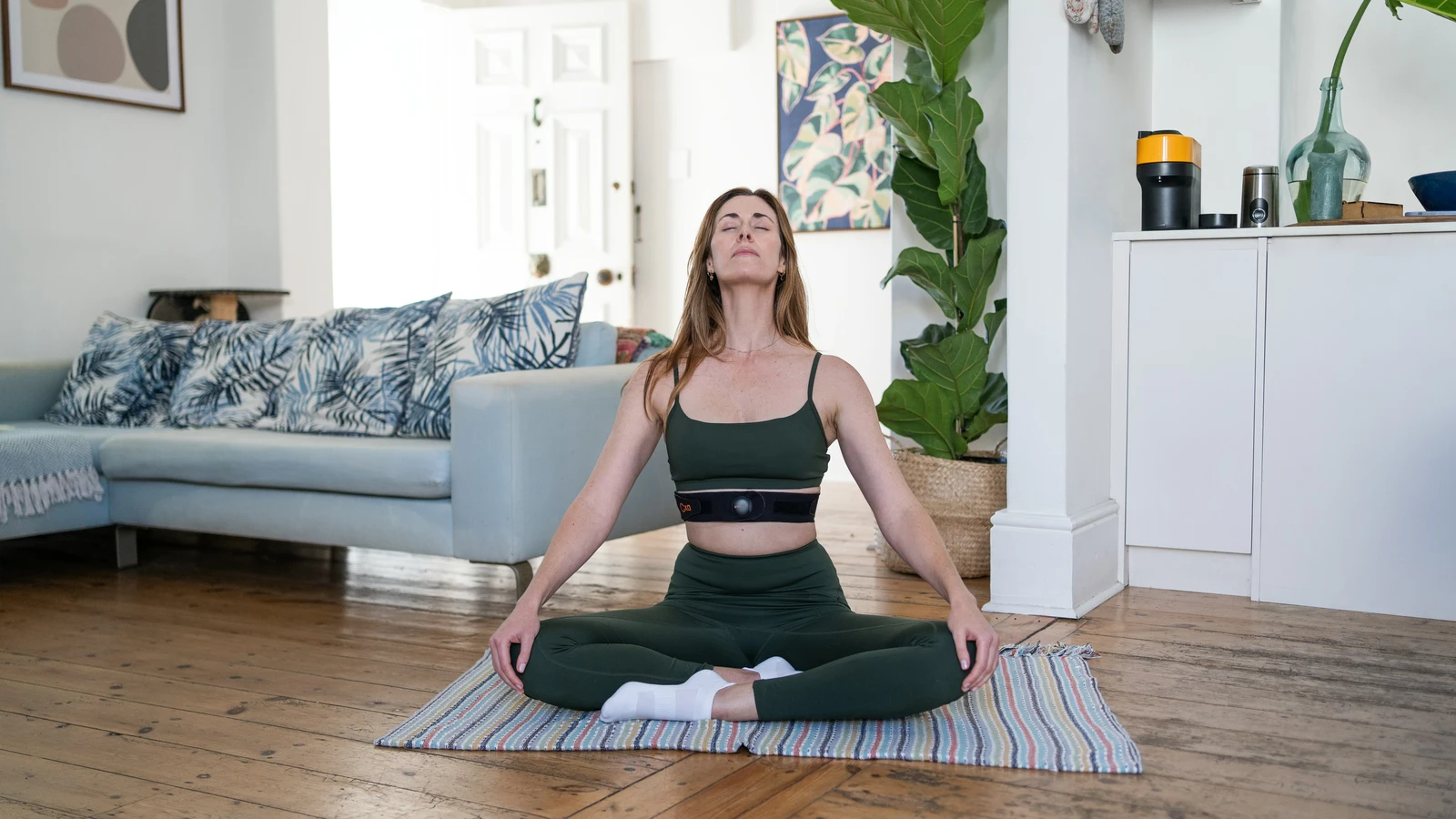Yoga Therapy For Addiction
Using Movement and Mindfulness To Enhance and Advance The Addiction Recovery Experience
Get Help Today
Alcohol and substance use disorder creates a significant imbalance in life, capacity, and potential. You lack clarity, focus, and drive to build a healthy lifestyle and be the best version of yourself. It doesn’t have to end there. Yoga therapy for addiction offers a therapist-guided opportunity to explore the mind-body connection and use movement and mindfulness to restore balance in your life.
The positive impact extends beyond recovery into healthy habits and routines, more self-awareness, and better physical health. With the right guidance and support, you will be stretched to your limits and come out stronger and more capable.
At Crestone Wellness, yoga therapy for addiction recovery is an essential tool in our wellness-focused toolbox. It allows us to identify and address harmful mental health and behavioral patterns that influence substance use. As Austin’s premier substance abuse treatment center, we foster abundance and joy to enhance the recovery experience and inspire hope.
What Is Yoga Therapy For Addiction?
Yoga is an ancient fitness and wellness practice that is one part fitness, one part mindfulness, and one part breathing techniques. Yoga therapy has a universal application that is beneficial for most but is especially helpful in treating the following conditions:[1]
- Stimulant use disorders
- Nicotine use disorder
- Opioid use disorder
- Alcohol use disorder
- Anxiety and mood disorders
- Stress
Yoga for addiction treatment is a weekly class for approximately 60 minutes that lasts the duration of your treatment program and beyond. Once established, the practice of yoga could become a cornerstone of your daily routine.
Yoga classes may be in both individual and group settings, where participants work directly with a certified yoga therapy instructor to stretch and strengthen the body and rejuvenate your central nervous system (CNS).[2]
Austin’s premier recovery center, Crestone Wellness, is an inpatient detox and rehab where we’re committed to enhancing the addiction treatment experience by fostering a positive, safe, and supportive environment. Our compassionate care team will walk alongside you from day one until you grow beyond our facility.
How (and Why) Yoga Therapy For Addiction Works
Yoga has been in use for over 3,000 years and is a sacred tradition for many, both due to tradition and application.[3] The core principles of yoga are based on 8 primary components: ethical disciplines, observations, physical postures, breathing exercises, sensory reduction, focus, meditation, and personal enlightenment.[4]
In Western applications, most of the focus is placed on postures, breathing, and meditation, but all together, these core components of yoga therapy help to:[5]
- Reduce cravings
- Maintain substance abstinence
- Regulate and support mood
- Lower anxiety baseline
- Reduce stress levels
As you leverage the holistic approach of yoga therapy for addiction recovery, you will increase self-control, resilience, and stress management skills. The effects of yoga and other complementary therapies will improve your quality of life and enhance your personal well-being.
Yoga promotes healing, and we incorporate it into our addiction treatment programs at Crestone Wellness. We blend evidence-based treatment and support with holistic interventions to create a customized recovery plan for you or your loved one. We’re committed to helping you find practical solutions to support sobriety, peace, and healing.
Substance Abuse Therapies
Efficacy of Yoga Therapy For Addiction
The benefits of yoga therapy can be experienced long after formal treatment programs have ended. Medical studies reveal that 56% of substance use disorder participants remained abstinent six months after yoga and mindfulness interventions.[6] With such full-circuit benefits and relapse prevention success, yoga therapy at Crestone Wellness is ideally suited to the recovery process. Our inpatient environment offers a distraction-free space where you can focus and enjoy the built-in peace and serenity.

What to Expect from Yoga Therapy For Addiction
Guided yoga sessions may vary in exact format from class to class, but the common structure includes the following components:[7]
Physical Movement:
Gentle stretching and postures that emphasize body awareness.
Breathing Techniques:
Slow, intentional breathwork that calms the nervous system.
Meditation and Mindfulness:
Focusing on mental calm in the present moment and objectively cataloging physical sensations.
Yoga Therapy For Addiction At Crestone Wellness
Our inpatient drug and alcohol addiction center offers both detox and rehab-level care. Our facility features the latest state-of-the-art amenities in a calm and peaceful environment that enhances focus, restoration, and healing.
Before treatment or holistic therapies begin, every patient will participate in a detailed and comprehensive assessment to determine the best course of action for you. The outcome of this assessment will help us design a customized plan tailored to meet your unique needs.
Leveraging the latest evidence-based treatment options and with our focus on holistic healing, we’re poised to support the best possible outcomes. Here, we help you build a foundation for lasting sobriety and wellness through gold-standard treatment interventions, yoga therapy, and community.
Frequently Asked Questions about Yoga Therapy For Addiction
Is yoga a rehab?
Yoga, despite its clear benefits, does not qualify as “rehab.” The best approach to yoga for addiction treatment is within a structured and professional treatment program that supports the benefits of yoga with other essential interventions and therapies.
How can yoga help you after you leave rehab?
The practice of yoga impacts your overall health and wellness on multiple levels, from craving and stress management to mental focus, physical health, and more. If you continue yoga classes after leaving rehab, these benefits will continue to ripple throughout your life.
What specific yoga practices are recommended for managing cravings and addiction?
In exploring the role of yoga in substance use disorder treatment, the following yoga practices and poses were proven to be particularly successful:[8]
- Sudarshan Kriya Yoga
- Pranayama
- Hatha Yoga
Sources
[1][2][4][6][7]Khanna, S., & Greeson, J. M. (2013). A narrative review of yoga and mindfulness as complementary therapies for addiction. Complementary Therapies in Medicine. Retrieved from https://www.ncbi.nlm.nih.gov/pmc/articles/PMC3646290/
[3]Woodyard, C. (2011). Exploring the therapeutic effects of yoga and its ability to increase quality of life. International Journal of Yoga. Retrieved from https://www.ncbi.nlm.nih.gov/pmc/articles/PMC3193654/
[5][8]Kuppili, P. P., Parmar, A., Gupta, A., & Balhara, Y. P. S. (2018). Role of yoga in management of substance-use disorders: A narrative review. Journal of Neurosciences in Rural Practice. Retrieved from https://www.ncbi.nlm.nih.gov/pmc/articles/PMC5812135/




